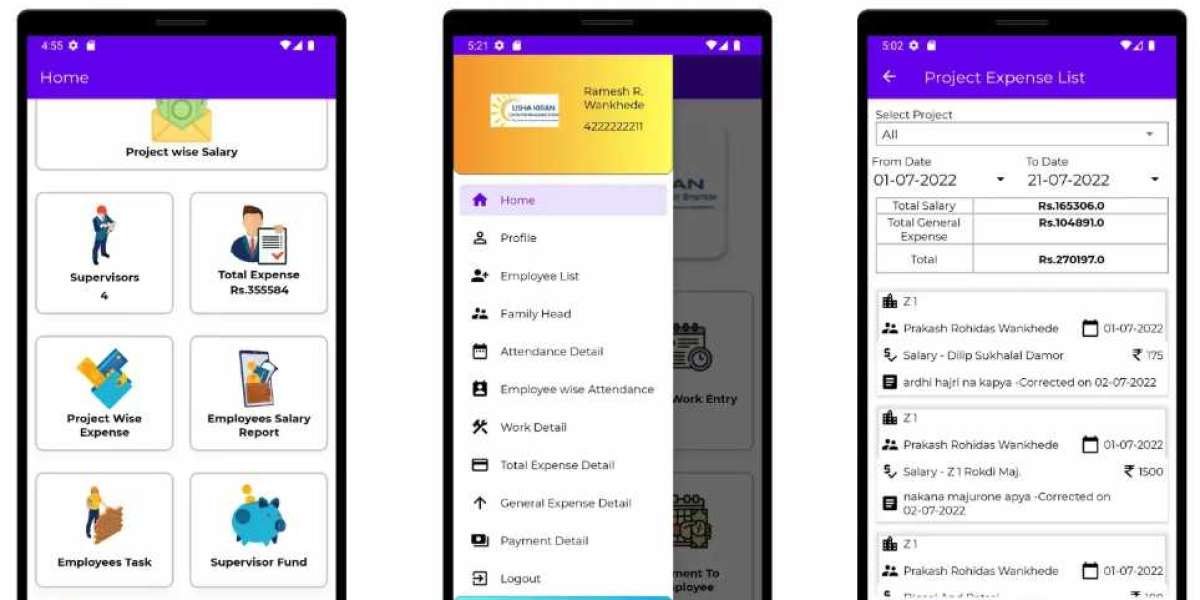In the ever-evolving construction industry, managing projects efficiently is crucial for delivering quality results on time and within budget. Construction Management Software for Projects has emerged as an essential tool for professionals seeking to enhance productivity, collaboration, and overall project success. This article explores the key features, benefits, and top solutions available in the market, emphasizing how construction management software can revolutionize project execution.
Understanding Construction Management Software
Construction management software encompasses a variety of digital tools designed to assist project managers, contractors, and teams in planning, executing, and monitoring construction projects. These solutions integrate various functionalities, such as project scheduling, budgeting, document management, and communication, into a cohesive platform. By centralizing project-related information, construction management software facilitates better decision-making and more efficient workflows.
Key Features of Construction Management Software
1. Project Planning and Scheduling
Effective project planning is the backbone of successful construction management. Construction management software typically includes robust project planning tools, such as Gantt charts and critical path analysis, enabling project managers to visualize timelines, set milestones, and allocate resources efficiently. These features help identify potential bottlenecks early, allowing teams to adjust schedules proactively and keep projects on track.
2. Budgeting and Cost Management
Managing finances is one of the most challenging aspects of construction projects. Construction management software offers budgeting tools that allow users to create detailed cost estimates, track expenses, and monitor financial performance in real time. This financial oversight helps prevent budget overruns and ensures that projects remain economically viable. Additionally, many software solutions provide reporting features that allow stakeholders to analyze financial data and make informed decisions.
3. Document Management
Construction projects generate a vast amount of documentation, including contracts, blueprints, change orders, and compliance records. Effective document management is vital for ensuring that all team members have access to the latest versions of important files. Construction management software often includes centralized document storage, version control, and easy sharing capabilities, reducing the risk of miscommunication and errors.
4. Collaboration Tools
Collaboration is key in construction, where multiple stakeholders must work together seamlessly. Construction management software provides a platform for real-time communication, enabling team members to share updates, feedback, and documents. Features such as messaging, commenting, and notifications keep everyone informed and engaged, fostering a collaborative environment that enhances project execution.
5. Mobile Access
With many construction professionals working on-site, mobile access to project information is essential. Most construction management software solutions offer mobile compatibility, allowing users to access project data, update tasks, and communicate with team members from their smartphones or tablets. This flexibility ensures that field workers can report issues, track progress, and access critical documents on the go.
6. Reporting and Analytics
Access to real-time data is crucial for informed decision-making. Construction management software often includes reporting and analytics features that enable project managers to assess key performance indicators (KPIs), resource utilization, and overall project progress. This data-driven approach allows teams to make timely adjustments and optimize project outcomes.
Benefits of Using Construction Management Software
1. Increased Efficiency
By automating repetitive tasks and centralizing project information, Construction Management Software for Projects significantly enhances efficiency. Teams can spend less time on administrative work and focus more on executing tasks, leading to faster project completion times.
2. Better Communication
Effective communication is vital in construction. Construction management software facilitates collaboration by providing tools for real-time updates and document sharing, ensuring that everyone involved is informed and engaged.
3. Enhanced Financial Control
With accurate budgeting and cost tracking features, construction management software helps prevent budget overruns. Project managers can monitor expenses in real time, enabling proactive financial management and informed decision-making.
4. Improved Risk Management
Construction projects often face various risks, from delays to safety hazards. By providing tools for tracking progress and analyzing data, construction management software helps identify potential issues early, allowing teams to address challenges proactively and mitigate risks.
5. Streamlined Compliance
Adhering to industry regulations and safety standards is paramount in construction. Many construction management software solutions include features that help track compliance documentation, ensuring that projects adhere to legal requirements and industry best practices.
Top Construction Management Software Solutions
1. Procore
Procore is a leading construction management platform known for its comprehensive suite of tools. It offers project management, budgeting, scheduling, and collaboration features, all in one user-friendly interface. Procore’s integration capabilities with other software enhance its functionality, making it a popular choice among construction professionals.
2. Buildertrend
Buildertrend is designed specifically for residential construction, providing tools for project management, customer relationship management (CRM), and financial management. Its client portal allows homeowners to track project progress, improving transparency and communication. Buildertrend caters to small to mid-sized contractors, making it an excellent choice for home builders and remodelers.
3. CoConstruct
CoConstruct is ideal for builders and remodelers, offering a platform for budgeting, scheduling, and client communication. With its intuitive interface, CoConstruct simplifies project management and enhances client satisfaction. Users can generate estimates, manage change orders, and track project timelines efficiently.
4. Smartsheet
Smartsheet is a versatile project management solution that can be customized for various industries, including construction. It offers templates for construction project management, allowing teams to collaborate in real time and generate reports easily. Smartsheet’s flexibility and automation capabilities make it suitable for teams looking for tailored solutions.
5. Monday.com
Monday.com is a work operating system that can be adapted for construction project management. Its customizable workflows and visual project tracking tools make it easy to manage tasks, deadlines, and resources. The platform’s integration capabilities allow teams to connect with other software, enhancing productivity.
6. PlanGrid
PlanGrid, part of Autodesk, focuses on document management and field collaboration. It allows teams to access blueprints and project documents on-site, enabling annotations and real-time updates. This feature is particularly valuable for field workers who need immediate access to the latest project information.
How to Choose the Right Construction Management Software
1. Assess Your Needs
Before selecting software, assess your specific needs and challenges. Consider the size of your projects, the number of users, and the features that would benefit your team the most.
2. Research Options
Take the time to explore different software solutions. Read reviews, compare features, and look for case studies that demonstrate how the software has helped other construction firms.
3. Request Demos
Most construction management software providers offer free trials or demos. Use this opportunity to test the software and see how it aligns with your project management style. Involve your team in the evaluation process to gather their feedback.
4. Evaluate Costs
Consider the total cost of ownership, including subscription fees, implementation costs, and any additional training required. Ensure that the software fits within your budget while meeting your needs.
5. Train Your Team
Once you’ve selected your tools, invest time in training your team on how to use them effectively. Proper training will maximize the benefits and encourage user adoption.
Conclusion
Investing in Construction Management Software for Projects is a strategic decision that can significantly improve project execution and overall efficiency. By enhancing collaboration, streamlining processes, and providing real-time insights, these tools empower teams to deliver successful projects and exceed client expectations. Whether you choose Procore, Buildertrend, or another solution, ensure that the software aligns with your specific needs. Embrace the potential of construction management software and watch your projects thrive!













